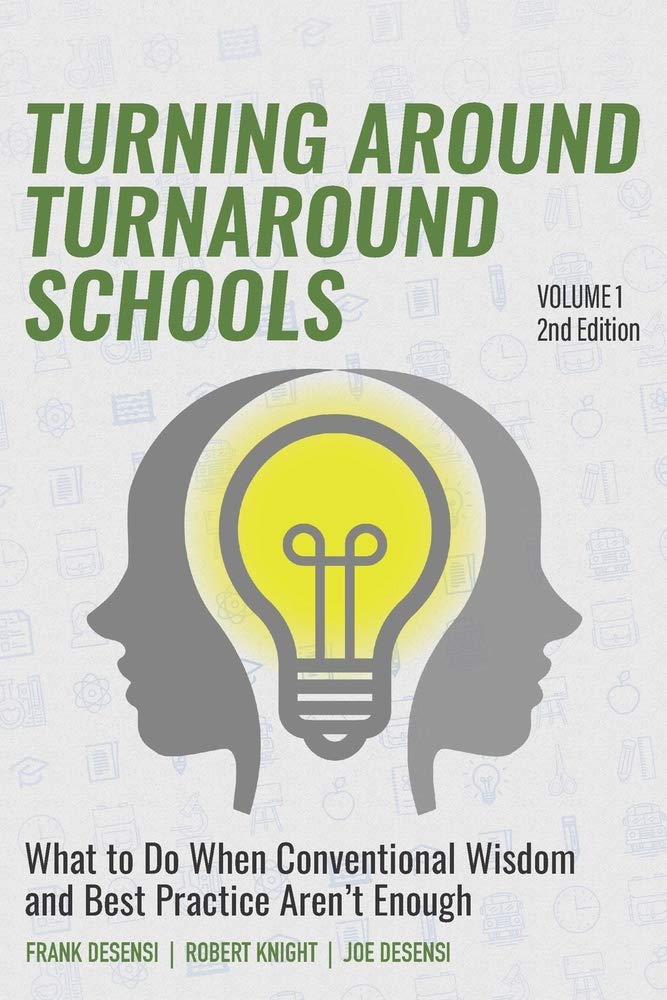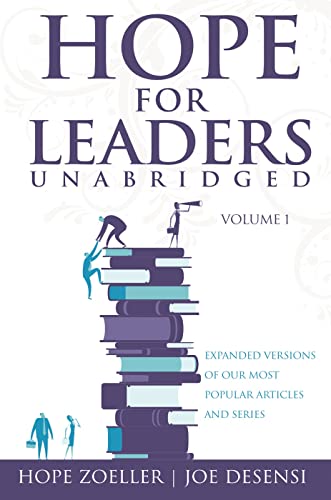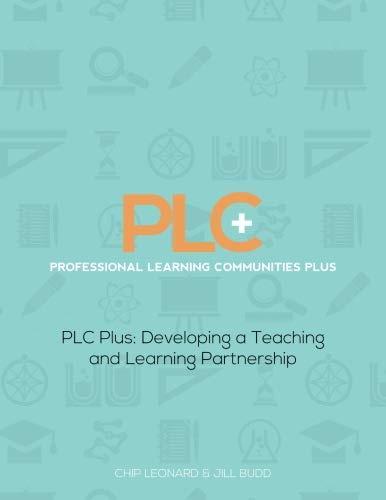
Turning Around Turnaround Schools, Volume 2: Embracing the Rhythm of the Learner Year
In the second volume in the Turning Around Turnaround Schools series, called Embracing the Rhythm of the Learner Year, the authors explore the neuroscience of how students learn and then use those insights to recommend a powerful and proven methodology for planning the school year around student need. Teachers don’t take state tests or college readiness tests — students do. Therefore, our metric of success in K-12 education cannot be how much is taught, but rather, how much is learned.
While the Rhythm of the Learner Year process is not focused on increasing test scores, it stands to reason that if we are creating independent learners who can perform at high levels and are willing to give best effort, increases on high-stakes testing should be a natural byproduct. The Learner Year teaches the reader (K-12 teachers, principals, superintendents, and other educational leaders) to consider the whole child in program design, taking into account both cognitive and noncognitive abilities and indicators. Ultimately, the authors make the case for a just-in-time approach to:
— Developing a school’s culture and climate
— Unpacking standards
— Building independent learners
— Making those learners performers
— Winning hearts and minds to get best effort for assessments
— Mitigating the summer losses of content and process.

Turning Around Turnaround Schools, Volume 1: What to Do When Conventional Wisdom and Best Practice Aren’t Enough
A Practical Guide for K-12 Schools in an Era of High-Stakes Accountability
Turning Around Turnaround Schools, now in its 2nd edition, is the go-to resource for leaders working in or with turnaround schools. In a practical “what to do” format – rich with concrete examples and tools to implement at your school – this book helps schools find relevant and targeted best practices for improving student achievement in an era of high-stakes accountability. Turning Around Turnaround Schools explores the idea of “student as learner” vs. “student as performer,” and helps educators to capture and use the right data. Written by a team of educators from Educational Directions, LLC, this book shares lessons learned, as well as proven strategies and processes implemented with struggling schools, both urban and rural, in several states.
The book chronicles the changes in perceptions, practices, and assumptions made by these educators during their 20 years of working with “turnaround schools.” The authors focus on areas that produced the greatest leverage in changing schools (e.g., identifying all the learnings and learner characteristics required by standards or developing causal data streams) and on some of the barriers that made these high leverage strategies difficult to implement (e.g., compliance cultures or entrenched programs). The book develops a new approach to the idea of intentional education, to educating the whole child, and to the process of using data to inform instruction.

HOPE for Leaders in the 2020s: New Issues to Face, New Problems to Solve, New Hope for the Future (The HOPE for Leaders Unabridged Series)
Heralded as “an exceptional collection … that will inspire you to become the leader your organization truly needs you to be,” HOPE for Leaders in the 2020s is the unrivaled guidebook for leading in the “now normal” of a post-pandemic world.
Brilliant Glimpses of the “Why” and the “How To” of Modern Leadership in the 2020s
When 2022 dawned, it was clear to professionals of all types that the world had shifted on its axis – not, this time, because of another viral pandemic (i.e., not with the novel crises and unexpected business shutdowns we’d endured in 2020-2021), but with the “hereafter” realities of a world forever changed by the lessons, traumas, innovations, and culture shifts of the era we’d just survived. Now what?
Many of the answers to modern leaders’ most pressing new questions lie in the pages of HOPE for Leaders in the 2020s, the second volume in The HOPE for Leaders Unabridged Series. Open your mind to the possibility of building and adapting your leadership skills for a new era — and for a workforce with newly articulated needs — by digging deep into the stories, tips, frameworks, and practical exercises of a book that was written for this decade and beyond. In the chapters of HOPE for Leaders in the 2020s, leadership experts Dr. Hope Zoeller and Dr. Joe DeSensi – in collaboration with esteemed book contributors from corporate America and academia – offer new ways to think about and address contemporary business issues, including leadership mindsets, project management, organizational culture, and workplace communications.

HOPE for Leaders Unabridged: Expanded Versions of Our Most Popular Articles and Series (1)
Deep Thoughts and Practical Applications for Modern Leadership Challenges
You’re busy, your to-do list is lengthy, and your commitment to your people and your organization is unflagging. In the midst of it all, you’re seeing new trends and challenges – and you’re eager to embrace fresh, proven approaches to leading, coaching, managing, developing, communicating, and innovating. That’s exactly what you’ll find in the pages of HOPE for Leaders Unabridged Volume 1, where authors and editors Dr. Hope Zoeller and Dr. Joe DeSensi take the best leadership topics from their popular HOPE for Leaders newsletter and dig deeper into the topics, the research, the lessons, and ultimately an invitation for the reader to take meaningful action.

PLC+: Professional Learning Communities Plus: Developing a Teaching and Learning Partnership
PLC Plus: Developing a Teaching and Learning Partnership will provide you with the knowledge and resources you need to understand and implement highly effective, teacher-student learning partnerships based upon student voice and strong teacher collaboration. This detailed and accessible guide explains the pragmatic process that will empower you to align instruction, incorporate formative assessment and capitalize on student feedback. You will have all that you need to revitalize learning and help every child realize his or her potential.

